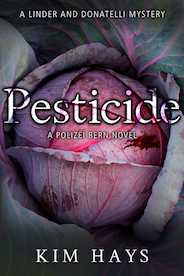
Although I’m an American, I’ve lived almost three-quarters of my life outside the United States, the past thirty-three years of it in Bern with my Bernese husband. Our marriage came with a bonus: I automatically acquired Swiss citizenship. But does that qualify me to write a book in which all but a few minor characters are Swiss? Not necessarily. What makes me comfortable writing a Swiss crime novel is how much I think like a Swiss.
Over a quarter of Switzerland’s residents are foreigners, either foreign-born or Swiss-born but without citizenship. These 2.2 million people range from foreign spouses like me to Syrian and Somali asylum seekers; from Secondos whose parents emigrated here one or two generations ago to wealthy expats working for multinational corporations. I’ve known a few people from all four of these groups who were unhappy in Switzerland, but I’m not one of them—it turns out that I was apparently born to be a Swiss. A big fan of knowing the correct way to behave in social situations? Check. Friendly but comfortable with emotional distance? Check. Automatically punctual? Check. Thrown off balance by invitations to dinner on the same day? Check. (My Swiss husband, a mathematician, is more spontaneous than I am!) Prefers precise, rational explanations to grand theories and gut feelings? Check.
My debut mystery, Pesticide, is a police procedural, and the Swissness in me is deeply satisfied by anything that has to do with the right processes. Despite being a devoted mystery reader since childhood, I’m not one of those people who is determined to suss out the murderer before the last-chapter revelation. What grabs me is the process: following the book’s investigators as they figure out what happened, why it happened, and who caused it. I’d rather study paint drying than watch someone putting a jig-saw puzzle together, but observing the piece-by-piece solution of a mystery, the process of solving the puzzle, with all missteps and the dead ends that entails, is enthralling.
So not for me or for Pesticide the wisecracking PI sauntering on the edge of legality, the whiskey-soaked retired sheriff with superb intuition, or the edgy big-city cop who lives to go undercover. They’re great to read about, but they aren’t very Swiss. I never miss a new Jack Reacher novel, but imagine him in Switzerland, a country with fewer people than New York City where everyone carries ID and a health insurance card and is required to register with the authorities as soon as they move into town. Jack gave up all rules when he left the Army; his sense of justice is all he needs to solve problems.
Pesticide’s problem-solvers aren’t as cocky or as independent. Giuliana Linder is a middle-aged homicide detective on the canton of Bern’s police force. She has two kids and a journalist husband who adjusts his work to the school day, so she can get her job done. During the past twenty years, this solution to childcare has become much more common in Switzerland. Since the Swiss don’t move very often, adults tend to live near their parents, and a generation ago, many grandmothers supplemented or even substituted for professional daycare. But now that sixty is the new forty, and more older women are working outside the home, grannies don’t want to spend the bulk of each week looking after their grandkids. So many fathers I know work 60%-to-80%, sharing afterschool care, shopping, and cooking with mothers who also work part-time. It helps that Swiss salaries are high relative to the rest of Europe, so that families can afford two part-time breadwinners.
Giuliana does not work part-time, but unlike the police in most novels, she often manages to get home in time for dinner with her family. Bern is not Los Angeles; here in this city of only 150,000, crime does sometimes sleep, or at least murders do. As for her assistant, Renzo Donatelli, a Secondo born in Bern and married to a German-speaker, he considers himself a Swiss who only occasionally lets his inner Italian come to the surface. One Seconda I know well has told me she sometimes feels Italian in Switzerland but almost always feels Swiss in Italy. I haven’t sent Renzo to Italy yet, but I imagine that’s how he’d feel, too, having spent his whole life in Bern.
Giuliana and Renzo do their best to solve crimes by the book and not to lose their tempers with stubborn witnesses and angry suspects. But in Pesticide their work—and their personal lives—keep getting more complicated, as the two murders they are trying to clear up raise one question after another, eventually coming together into one case.
Pesticide, the first book in the Polizei Bern series, may be a police procedural, but it’s one in which the well-defined official procedures don’t always work, which means Giuliana and Renzo sometimes have to break the rules. They just don’t do it lightheartedly. That would be very unSwiss.

April 19, 2022
Seventh Street Books, Pbk $17.95, Kindle $9.99
Order from Amazon.com